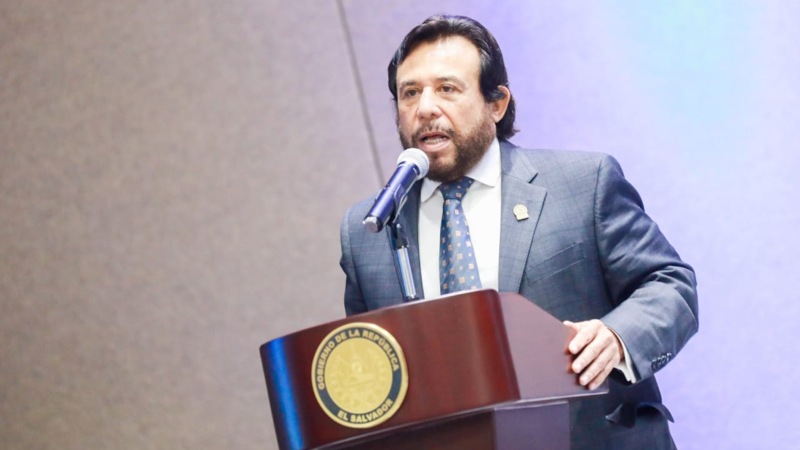
Ulloa alleges that he did not propose consecutive re-election, but the imposed Chamber does allow it in an illegal sentence. The vice-president expressed that in article 248 they left established the alternabilidad to the presidency.
As a result of a “bad wording” of the current Constitution explains the Vice President of the Republic Felix Ulloa the “interpretation” made by the Constitutional Chamber “imposed” for officialdom in Article 248 so that President Nayib Bukele can be re-elected immediately after the end of his term in 2024.
“These are the inconsistencies we find in the constitutional rules that we have tried to correct. But the alternability has remained unchanged, so in Article 248 we let the alternability must be respected,” argued Ulloa in wheel press release prior to a public event to address issues relating to the future of Central America with the presence of officials from various Central American governments.
To the question of the journalists that if it considers that the imposed Room of the Constitutional one has changed or not a petrified clause; Ulloa stated that he did not know, but assured that an “interpretation has been made that comes to change the jurisprudential line of another room.”
SEE: Constitutional Chamber imposed by the bureaucracy enables the re-election of Bukele
He added that this is a concern they have and that for this reason they wanted to make it clear in the reform that the constitutional rules must be drafted and drafted in a way that does not lead to interpretations.
“Because a line of jurisprudence can be changed from one court to another, but if the rules are clear, there is no room for interpretation,” he said, referring to the fact that since May 1 a Chamber of Constitutional imposed by the Executive and endorsed by the Assembly also dominated by the Presidency of Bukele.
According to him, one cannot be subject to what one judge says and then to another. What he did consider that they had to change is that there must be at least a period of presidential means for a president to seek office again, but not immediately at the conclusion of a presidential term.
The current Constitution reads that a former president can seek that position again, but after leaving two presidential terms in between.
ALSO: International jurist calls Bukele’s re-election ruling “an illegitimate change”
The proposals for reform of the Constitution designed by the Ad Hoc team led by Ulloa will be presented this September 15 to the President of the Republic.
The vice-president justified that they are more “guaranteeing, progressive and more inserted in models of social and economic development”; however, constitutionalist lawyers warn that this is a new Constitution as more than 80% of the articles of the primary regulations are reformed. Moreover, that the modifications also seek to consolidate Bukele’s “authoritarian and dictatorial” power.
The decision of the Imposing Chamber that enables the re-election of President Bukele has generated condemnation nationally and internationally. One of the strongest positions of rejection came from the U.S. Embassy’s Chargé d’Affaires, Jean Manes.
While the United Nations (UN) called for respect for the Constitution, the rule of law, as well as the separation of powers to protect democracy in El Salvador.
However, Bukele has avoided commenting on the issue of re-election.
MORE ON THE TOPIC:
“The Constitution does not allow the same person to be president twice in a row,” Nayib Bukele said in 2013 about re-election
UN calls for protection of democracy in El Salvador after decision on presidential re-election